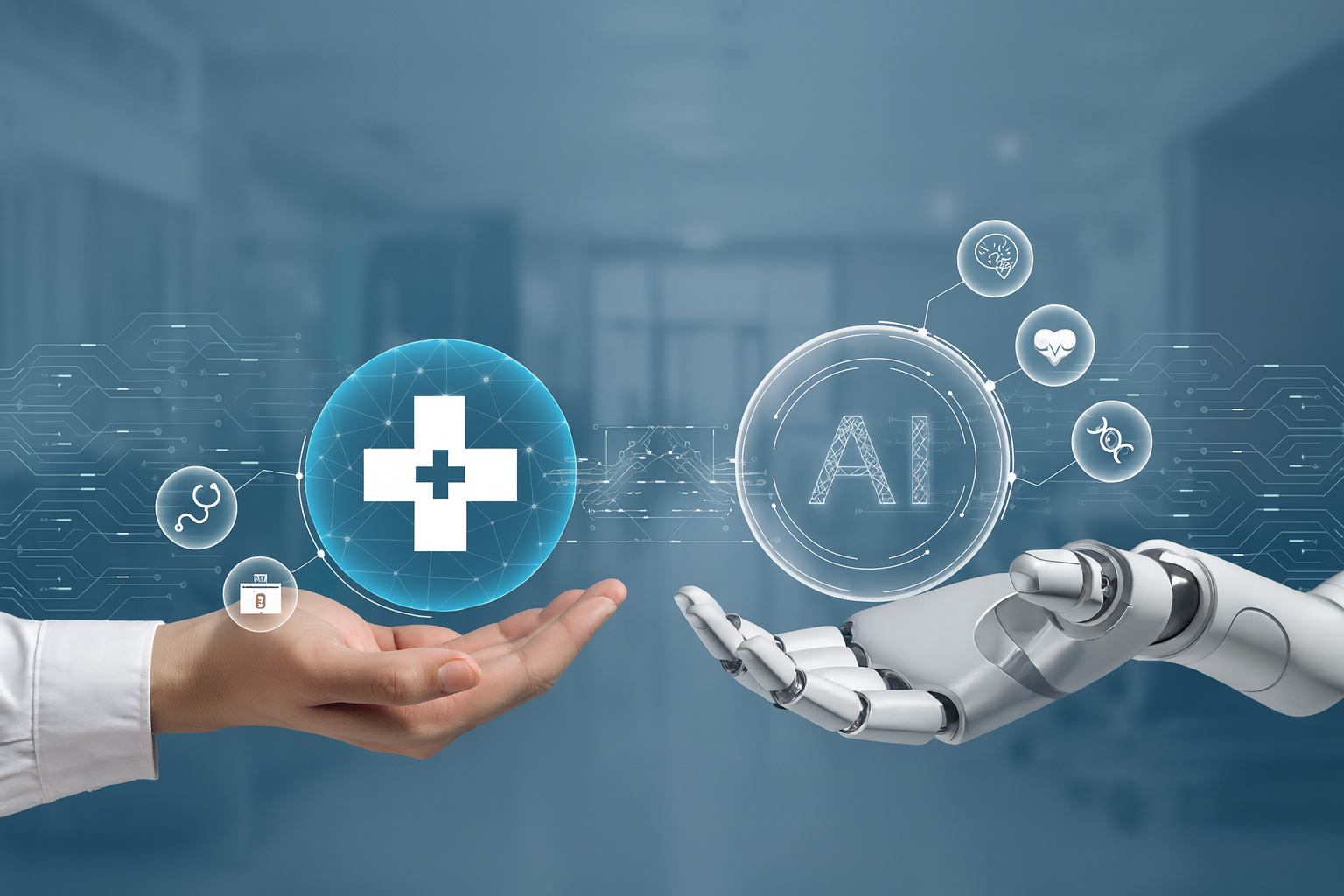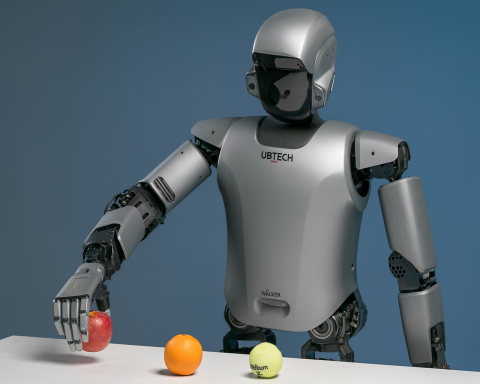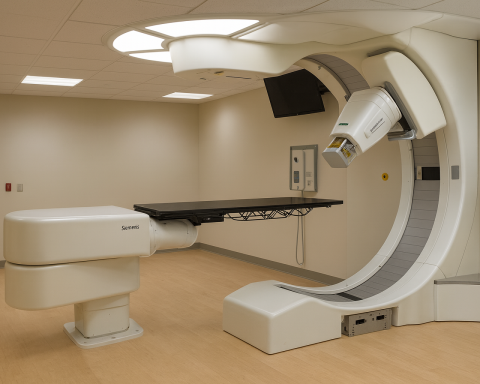- Sharper Diagnostics: AI now rivals or beats human experts in many areas. For example, AI models can analyze medical images (like X‑rays, MRIs and pathology slides) with very high accuracy. A 2024 study reports an AI system (called CHIEF) achieved ~94% accuracy in detecting cancer on pathology slides across 11 tumor types news.harvard.edu. Another AI was “twice as accurate” as doctors at reading stroke brain scans weforum.org, and a UK trial showed an AI detected 64% of subtle epilepsy lesions that radiologists missed weforum.org. (Lead researcher Dr. Konrad Wagstyl says it’s “like finding one character on five pages of solid black text” – AI found two-thirds of missed lesions weforum.org.) Overall, reviews note that image-heavy fields like radiology and pathology are at the forefront of AI’s benefits nature.com. AI’s pattern‑recognition can flag suspicious features faster and more consistently than ever before.
- Faster Drug Discovery & Personalized Therapies: AI is accelerating the drug pipeline. By crunching genomic, proteomic and chemical data, AI finds drug targets and candidate molecules far quicker than trial‑and‑error. As one 2024 review notes, AI has “unlocked unprecedented opportunities for acceleration of drug discovery” and is “swiftly transforming” the pharmaceutical industry pmc.ncbi.nlm.nih.gov. For example, Google’s DeepMind recently introduced AlphaFold 3, an AI that predicts 3D structures of proteins, DNA, RNA and drug-like molecules. AlphaFold3 doubled prediction accuracy for many molecular interactions over prior models blog.google. Millions of researchers use AlphaFold to design new drugs for diseases like cancer and malaria. In short, AI tools can sift massive biomedical databases in seconds, predicting which molecules might work as drugs and even forecasting their side effects and efficacy pmc.ncbi.nlm.nih.gov, blog.google.
- Precision Surgery: AI-powered robotics and planning are making surgeries safer and more precise. Surgical robots (like the da Vinci system) already give surgeons superhuman dexterity and steadiness. Embedding AI makes them smarter: modern systems use real‑time image analysis and motion control algorithms to guide instruments. A 2024 review explains that AI-enhanced robotic surgery boosts precision, reduces surgeon fatigue and improves patient outcomes journals.lww.com. In practice, this means smaller incisions, less blood loss and faster recovery. Patients benefit when AI can, for example, automatically highlight critical tissue on a live video feed or adjust cutting tools with millimeter accuracy. (As one summary puts it: integrating AI holds “promise for advancing surgical care” and “improved patient outcomes” journals.lww.com.)
- Personalized Treatment: AI helps tailor care to each patient’s unique makeup. By analyzing a person’s genome, medical history, lifestyle and even wearable data, AI can recommend the best drugs or doses for them. For instance, AI algorithms now predict drug responses and flag potential adverse reactions from a patient’s genetic profile pmc.ncbi.nlm.nih.govv. This precision medicine approach means treatments can be chosen to maximize benefit and minimize side effects. One review notes that AI-driven models enable “precise therapies tailored to the individual genetic profile” of patients pmc.ncbi.nlm.nih.gov. In oncology, AI may match cancer patients to targeted therapies by reading tumor DNA faster than lab tests. In chronic diseases like diabetes, AI-driven plans can adjust treatments based on real‑time glucose readings and personal factors.
- Remote Care & Telehealth: AI extends care outside hospitals. Smart phones, wearables and home sensors feed patient data (heart rate, blood pressure, activity, sleep patterns, etc.) into AI systems that monitor health 24/7. These systems can alert doctors to trouble before a crisis. For example, one study showed an AI using UK health records could predict the future onset of hundreds of diseases (from Alzheimer’s to kidney disease) years before symptoms. As researcher Slavé Petrovski put it: “We can pick up signatures in an individual that are highly predictive of developing diseases like Alzheimer’s, COPD, kidney disease and many others”. AI-powered chatbots and symptom-checkers (while not replacements for doctors) are also widely deployed, providing health advice and guidance to patients at home. In fact, a World Economic Forum report found that a digital AI health platform (Huma) cut hospital readmissions by 30% and clinician review time by up to 40% in one case study weforum.org.
- Hospital Operations: Behind the scenes, hospitals are using AI to work smarter. Administrative tasks – scheduling, billing, coding, paperwork – are being automated. For instance, Microsoft’s new “Dragon Copilot” is an AI assistant that listens to doctor visits and generates clinical notes weforum.org. Google and startups have AI tools that automate insurance forms and streamline lab test ordering weforum.org. In Germany, the AI platform Elea has cut test results and diagnoses from weeks to hours weforum.org. As Elea’s co-founder Dr. Sebastian Casu notes, “No one joins the healthcare sector to spend hours on admin” weforum.org. By handling routine tasks, AI frees clinicians to focus on patients. Hospitals also use AI for logistics: predicting emergency room demand, optimizing staff schedules, managing supply chains and even monitoring intensive care patients. When ICU patients are continuously tracked by AI systems, doctors get early warnings of sepsis or respiratory failure. In short, AI is smoothing hospital workflow, reducing human error, cutting costs and increasing capacity.
- Mental Health & Well-Being: AI is increasingly applied to mental health care – from mood-tracking apps to chatbot therapists. Some studies report AI chatbots (like Woebot or others) can improve mood and reduce anxiety in users. A 2024 scoping review found that AI chatbots “demonstrated potential benefits in improving mental and emotional well-being”, aiding people with depression, anxiety, and encouraging healthy habits mdpi.com. Because mental health providers are scarce, AI can help bridge the gap by offering 24/7 support for reflection, journaling or basic Cognitive Behavioral Therapy exercises. However, experts strongly caution that AI is not a replacement for human therapists. A June 2025 Stanford study warned that therapy chatbots can reproduce biases or give unsafe advice if not properly guided hai.stanford.edu. Nick Haber of Stanford points out: “LLM-based systems are being used as companions, confidants, and therapists, and some people see real benefits – but we find significant risks” hai.stanford.edu. In practice, AI in mental health is best viewed as a complement: it might flag at-risk behavior or handle routine check-ins, while real human clinicians handle complex care.
Each of these advances comes from a growing body of AI research and real-world trials. Dr. Kun-Hsing Yu of Harvard, who led development of the CHIEF cancer-diagnosis AI, reports: “Our model turned out to be very useful across multiple tasks related to cancer detection, prognosis, and treatment response across multiple cancers.” news.harvard.edu And many more such AI projects are underway globally. Large tech and medical groups are collaborating: Google’s DeepMind and Isomorphic Labs focus on drug design, Microsoft on clinical AI assistants, and companies like Intuitive (maker of the da Vinci robot) continue integrating smart software.
Of course, experts emphasize that AI is a tool for doctors, not a replacement. The goal is to augment human care. As Harvard physician Dr. Adam Rodman says: “The optimist in me hopes that AI can make us doctors better versions of ourselves to better care for our patients.” news.harvard.edu And Harvard informatics chair Isaac Kohane envisions a world where “having an instant second opinion after any interaction with a clinician will change, for the better, the nature of the doctor-patient relationship.” news.harvard.edu He notes that with AI backup, “teamwork” between machine and human could strengthen our strained healthcare system.
In short, AI’s achievements in medicine are remarkable and rapidly expanding. It is improving diagnosis and imaging, speeding drug discovery, enhancing surgical precision, tailoring treatments, extending care into patients’ homes, and streamlining hospital work. These advances promise better outcomes and broader access to care. But authorities also stress caution: regulators like the FDA insist any AI tools must be rigorously validated to ensure they are “safe, effective, and trustworthy” weforum.org.
Nevertheless, the consensus among doctors and technologists is that AI is already revolutionizing healthcare. From flagging cancers earlier to designing the next blockbuster drug, AI’s impact is profound. As we move forward, experts agree on one thing: with proper oversight, AI will be an indispensable ally in saving lives and transforming medicine for the better news.harvard.edu, blog.google.
Sources: Authoritative medical and technology publications were used, including peer‑reviewed reviews and news from Harvard, WHO/WEF collaborations, leading journals, and AI developers. Key references include Lancet and NPJ Digital Med reviews of AI diagnostics nature.com, Harvard Gazette reports on AI in cancer news.harvard.edu, MDPI and JAMA Network analyses of AI in pharmaceuticals pmc.ncbi.nlm.nih.gov, and World Economic Forum and Stanford research on AI health applicationsweforum.org, hai.stanford.edu. All quotes and facts are drawn from these credible sources.












